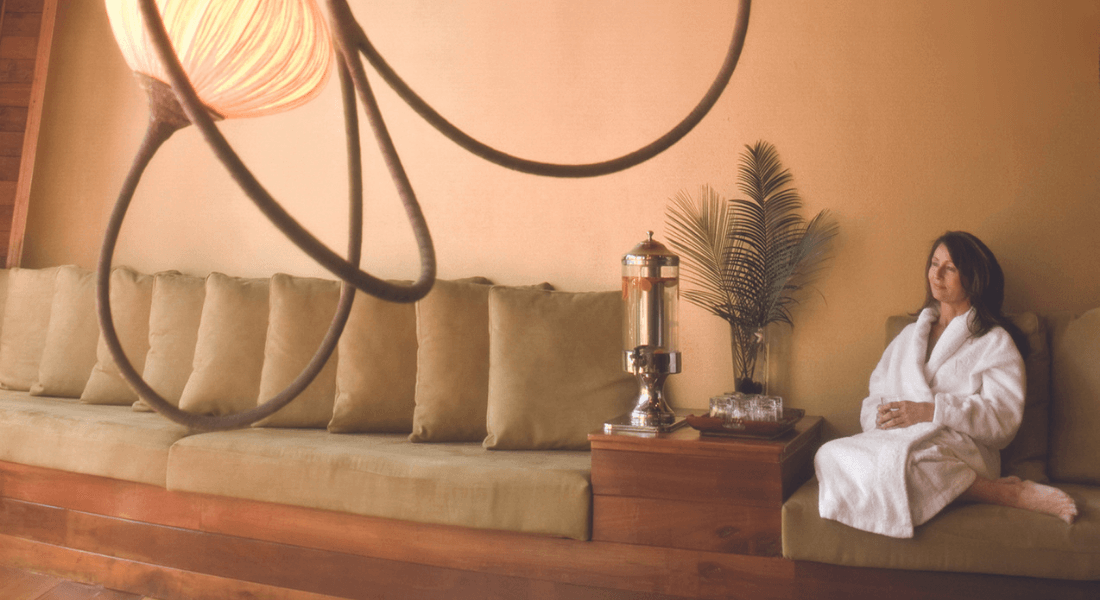From tying up loose ends at work, to planning gifts, contacting friends and relatives and organising Christmas Day plans, the festive season can be the most joyous time of the year, yet sometimes the most overwhelming. So, in order to best preserve the efforts you’ve made to enhance your wellbeing, it helps to take some time to reflect on what’s important to you and set healthy boundaries.
What are boundaries and which are most important to you?
Boundaries are one way we practice self-care. By putting boundaries in place, we help to preserve our energy and our physical and emotional wellbeing. We also clarify what is and what is not our responsibility, which is an essential function in any healthy relationship with ourselves and with others.
Some people have very clear boundaries in the workplace but might lack clarity in their personal life. For others, the opposite may be true. It’s common to struggle setting boundaries altogether and if you’re a people pleaser by nature who struggles to say no, you may fit into this category.
Take some quiet time to consider situations and events in life that you find challenging. Start with your personal health boundaries to support your goal of optimum wellbeing and energy, then move on to your personal space, workplace and relationships. Having healthy relationships is an essential part of our wellbeing. Often we are afraid to set boundaries or are not clear in our communication with others about respecting these.
Sometimes we are not so clear about where this line is until it has been crossed by someone, which can make us feel angry, frustrated, annoyed or attacked. These emotional triggers can lead to reactivity or a victim mentality. A boundary is usually aligned with a value, however, it can also be associated with a belief. We have provided some examples and definitions to support you to define, set and implement your boundaries.
Setting boundaries
To set boundaries, start by asking yourself, what is the minimum I need to do every week in order for me to feel healthy, energised and able to cope with challenges as they arise?
The answer establishes your boundaries. For example, follow the 80/20 philosophy and eat mostly organic. Cut out sugar in your cup of tea. Have five alcohol-free days per week and one alcohol-free month each year. Do yoga three times a week and Qi Gong four mornings. Follow a regular ritual before bed to help ensure quality sleep. Have a bath once a week and a massage once a month.
Set some guidelines to help you get back on track if you break your promises to yourself. A boundary is not a rule. Sometimes things occur that are beyond our control and we need to be flexible enough to go with this without feeling as though we’ve let ourselves down.
Guidelines for setting a boundary with others:
- Follow through on your plan with action.
- Be direct, firm and gracious.
- State what you want to happen.
- Avoid blaming, defensiveness or over-explaining.
- Have moral support available on the sidelines at the beginning.
- Be clear about your personal needs.
Examples of boundary setting:
- Anger: “I can see that you’re angry right now. I am here to listen and work towards a solution, provided we do so in a calm way.”
- Criticism: “It may not be your intention to criticise me, however, from my perception this conversation is hurting my feelings. We can continue to discuss this, but it needs to be in a way that I feel supported by you.”
- Buying time: “Sometimes I need more time with decisions to think and reflect. Can I come back to you in (put in your time frame)? If you need an immediate decision though, I am sorry, my answer will be no.”
- Extra commitments: “I know this is important to you and if the timing was different I would be there to assist, however, sadly I am unable to help you at this time.”
Remember boundaries are the:
- Clearly defined limits within which you are free to be yourself with no restrictions placed on you by others as to how to think, feel or act.
- Emotional and physical space you need in order to be the real you without pressure from others to be something that you are not.
- Emotional and/or physical perimeters of your life which are or have been violated when you were emotionally, verbally or physically abused.
- Healthy emotional and physical distance you can maintain between you and another so that you do not become overly attached and/or dependent.
- Set of parameters that make you a unique and autonomous individual who has the freedom to be a creative and original problem-solver.
Make this holiday season a joyous one, and set healthy boundaries that benefit you and your wellbeing. Those closest to you will understand that you’re taking care of yourself. And if they do not realise the importance of your set boundaries, you know how to address them in a way that is calm yet firm and does not disrupt your focus.
From all of the team here at Gwinganna, we wish you a very Merry Christmas and a happy new year.




